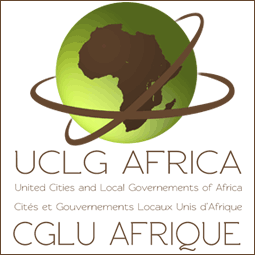Nigeria: Nigeria: Budget 2013 - OPS Frets Over Nigeria's Debt Profile
2012/12/20
Members of the Organised Private Sector through the Lagos Chamber of Commerce and Industry (LCCI), have expressed worry over the growing level of domestic debt and the high cost of debt servicing reflected in the 2013 budget presented to the National Assembly by President Goodluck Jonathan.
The Chamber, nevertheless, stated that the provision of N100 billion sinking fund for the repayment of maturing debt obligations was a welcome development. In a statement by the President of LCCI, Goodie Ibru, he said the country's debt profile remains a major source of concern.
"We are concerned about the growing level of domestic debt and the high cost of debt servicing. Domestic borrowing is proposed to reduce from N747 billion in 2012 to N727 billion in 2013, a mere 2.3 % reduction, and a staggering N591.76 billion is earmarked for debt servicing," he said.
He as well stated that the Fiscal policy measures in the budget are far reaching, such as the 10 % import duty and 100 % levy planned to be applied to both brown and polished rice.
"We commend these measures as they could boost domestic production, conserve foreign exchange and create jobs. Nevertheless, the imposition of 100 % levy on rice which is a staple food may have some unintended consequences if there is no adequate supply side response on the domestic front," he said
If the domestic capacity to grow and process rice is not first put in place, he predicted the risks of a drastic increase in the price of rice which would result in escalation of poverty; escalation of smuggling and corruption at the ports; pressure on government for waivers of duty and the diversion of cargoes to neighbouring nations, thus denying the maritime sector of jobs and revenue.
"For the avoidance of doubt, the Lagos Chamber of Commerce and Industry is in full support of the self-reliance aspirations in food production. But for such a policy to be sustainable there should be a deliberate policy and practical steps to build capacity to fill the request-supply gap that would be created. Otherwise, the citizens will be further impoverished. The implication of the recent flood disaster on food security is as well a factor to take into account," he said.
He noted that the issue of a lot of government agencies and ministries that are indebted to local contractors to the tune of hundreds of billions of naira is a matter significant enough to get a mention in the President's budget speech.
"As the National Assembly deliberates on the budget, we request that due consideration be given to the problem of indebtedness to local contractors. It is curious that while the government gives considerable attention to securitised debts (redemption of treasury bills and bonds) attitude towards debts owed to contractors are that of indifference," he said.
He said as the details of the appropriations are made public, further submissions would be made to the National Assembly.
- Comments
- Related Articles
-
Minister of Petroluem resources, Diezani Alison-Madueke
2012/12/31 Minister of Petroluem resources, Diezani Alison-Madueke has said that with the current national consumption rate at 110,000 metric tonnes (MT) per annum of Liquified Petroleum Gas (LPG), Nigeria is ranked part the lowest consumers of LPG in Africa. Speaking at the opening of the LPG Strategic Workshop and Conference in Abuja, the minister said growing the LPG market in Nigeria is a critical component of the country’s Gas Master plan. -
MCC Selects Countries Eligible for New Programs
2012/12/30 At its quarterly conference December 19, the U.S. Millennium Challenge Corporation (MCC) board of directors selected Liberia, Niger, Sierra Leone, Morocco and Tanzania as eligible to develop proposals for new compacts, and Guatemala as eligible for a Threshold Program. "This year's selection decisions are a testament to the 'MCC Effect,' the ability of MCC to provide incentives for nations to adopt policy reforms and strengthen institutions in order to become eligible for an MCC compact," said Daniel W. Yohannes, MCC's chief executive officer. -
Infrastructure evolution set to test tower space
2012/12/29 We have come to expect technology advances that result in consumer electronics equipment getting smaller, additional powerful and in most cases cheaper. This process can be seen in the hands and pockets of most consumers where that smartphone or tablet device houses additional processing power and came at a cheaper price than desktop computers of a decade ago. -
Airtel Nigeria Completes LTE Trial
2012/12/27 Mobile service provider Airtel Nigeria has taken a giant stride in its quest to pioneer innovation and lead a new phase of telecoms revolution in the country as it announces the successful completion of the Long Term Evolution (LTE) trial in Lagos, the commercial nerve centre of Nigeria. LTE, widely accepted as the true 4G, is a standard for wireless communication of high-speed data for mobile phones and data terminals. It is based on advanced network technologies with a central focus of increasing the capacity and speed using a different radio interface together with enhanced core network. -
Efforts to improve critical routes on federal roads
2012/12/27 A whopping N500 billion would be required annually for the next years to fix Nigerian ailing roads and bring them to sync with road infrastructure development in other thriving nations in the world. This was disclosed recently by the Minister of Works, Mr. Mike Onolememen. Onolememen who is an Architect, told the Home of Representatives' Committee on Works that the average annual budget of about N100 billion for road development is grossly inadequate for the country's 35,000 kilometre of Federal roads.
-
- Trending Articles
-
- GABON: Final day of the New York Forum Africa in Libreville 2012-06-25
- TURKEY: Turkey Real Estate 2012-07-24
- AFRICA: Ethiopia, Zambia, Cape Verde: Clarification on the management of television and radio rights
- BRAZIL: Brazilian Gradiente launches IPHON
- MEXICO: Another stab at radical change in telecommunications
- TANZANIA: Tanzania to restrict size of land investors can lease



.gif?1356023993)
.gif2_.gif?1356029657)




